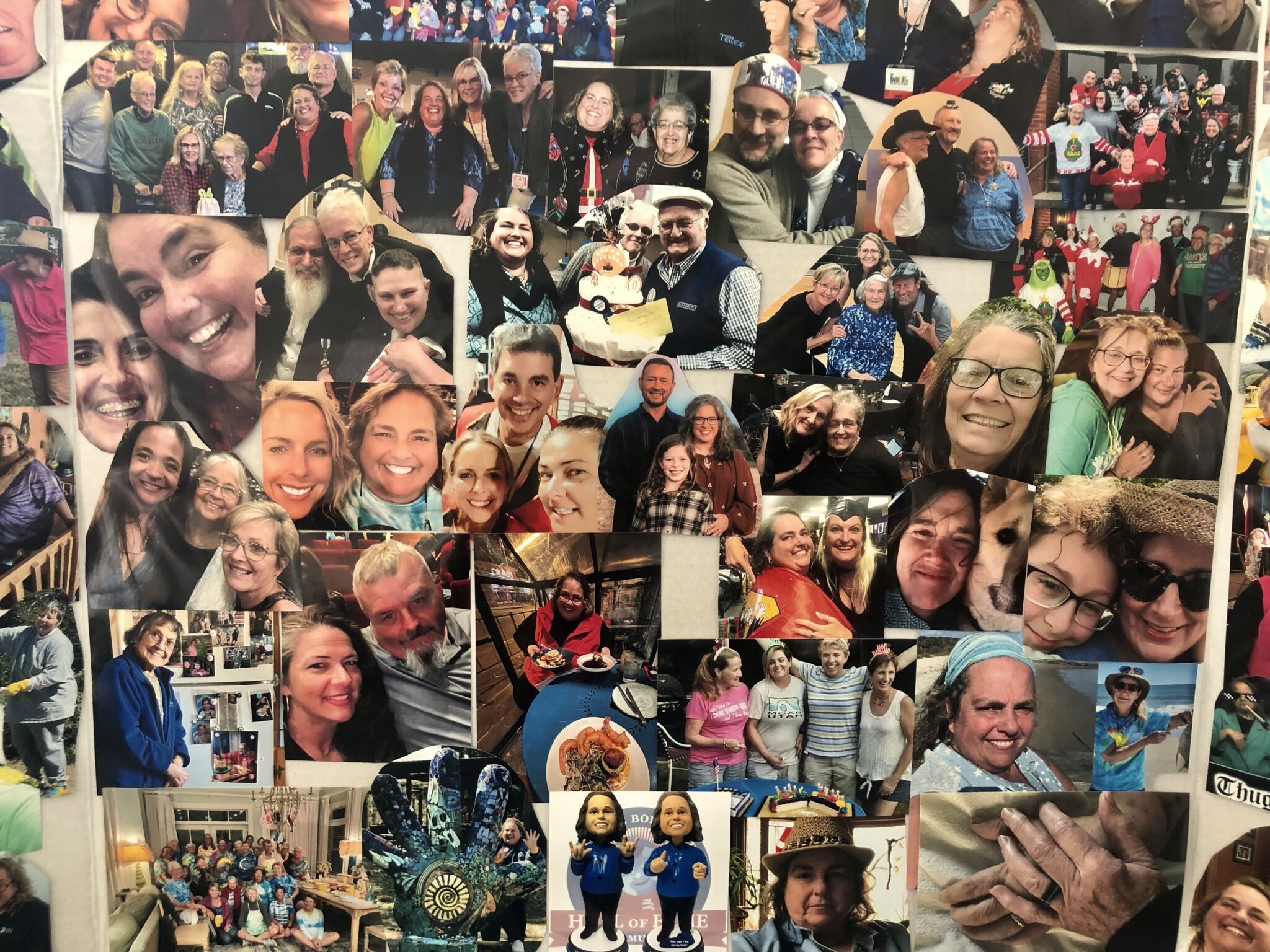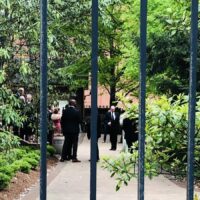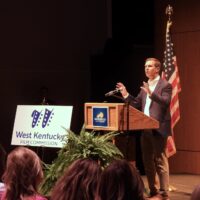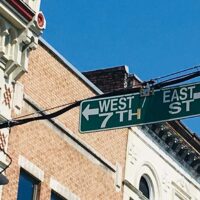LOUISVILLE – There’s a version of the late Virginia Moore that the general public mourns: the woman who stood next to Gov. Andy Beshear day after day, interpreting in sign language how many Kentuckians COVID-19 had killed that day.
But her friends and family who gathered at the Muhammad Ali Center in downtown Louisville on Sunday to celebrate her life remember her for so much more than the fame she knew during the pandemic.
She was, as her loved ones described during a four-hour “Celebration of Life”, interpersonally fearless, unapologetically passionate about accessibility, fiercely loyal, a lover of art and someone who made her friends “ugly laugh.”
Picture slide shows from her life showed the side of Moore the public didn’t see: Her holding up her catch after fishing. Walking the dog. At a play. Traveling. Laughing.

She taught those around her constantly. One person said she taught her how to pronounce Louisville correctly by grabbing her tongue and guiding it to say Lou-uh-vul not Looey-ville. Moore taught another friend to drive.
But mostly, several people said, she taught those around her how to be better, more caring people.
During Sunday’s ceremony, Gov. Andy Beshear praised Moore — whose loved ones called her VJ, VA or Jenny — for her tirelessness in getting good information about the pandemic to people in the deaf and hard of hearing community.
“She changed the world,” Beshear said, crediting Moore for more widespread use of sign language interpreters at governmental briefings. “She absolutely did.”
Moore made sure every day, he said, that “everyone was included.”
“Every person mattered to Virginia,” Beshear said. “She led with kindness, love, compassion and inclusion. You knew you mattered to Virginia. And it was real whether you’d met her or not.”
Deputy Mayor Barbara Sexton Smith on behalf of Mayor Craig Greenberg named Moore a distinguished citizen of Louisville, the city of her birth. And Dr. Raymond Burse on behalf of the Human Rights Commission presented the family with a resolution in Moore’s honor. Others read poems and performed songs in sign to honor their friend, who died on Derby Day at age 61.
Karen Henry, Moore’s sister, said her sister’s advocacy can be traced back to childhood. Back then, Moore refused to sign small to avoid stares in public places.
Virginia Moore “was not afraid or embarrassed” to communicate with sign, Henry said.
“’We don’t have to sign low where people can’t see us in a restaurant,’” Henry recalled her sister saying. “Virginia would stand up in the restaurant and say, ‘Hey, look. See, I’m gonna sign to you.’ And she would sign as big as she could.”
As an adult, she advocated for the deaf and hard of hearing community to have just as much access to communication as hearing people. She fought for technology that would make their lives easier. And she interpreted whenever there was a chance or need.
Moore’s wife, Row Holloway, asked people to honor Moore’s legacy by paying kindness forward.
“Smile at a stranger,” Holloway said. “Help somebody at Christmastime. do something nice for somebody you don’t like. And maybe that’ll come back.”
This article is republished under a Creative Commons license from Kentucky Lantern, which is part of States Newsroom, a network of news bureaus supported by grants and a coalition of donors as a 501c(3) public charity. Kentucky Lantern maintains editorial independence. Contact Editor Jamie Lucke for questions: info@kentuckylantern.com. Follow Kentucky Lantern on Facebook and Twitter.
Sarah Ladd is a Louisville-based journalist and Kentuckian. She has covered everything from crime to higher education. In 2020, she started reporting on the COVID-19 pandemic and has covered health ever since.






